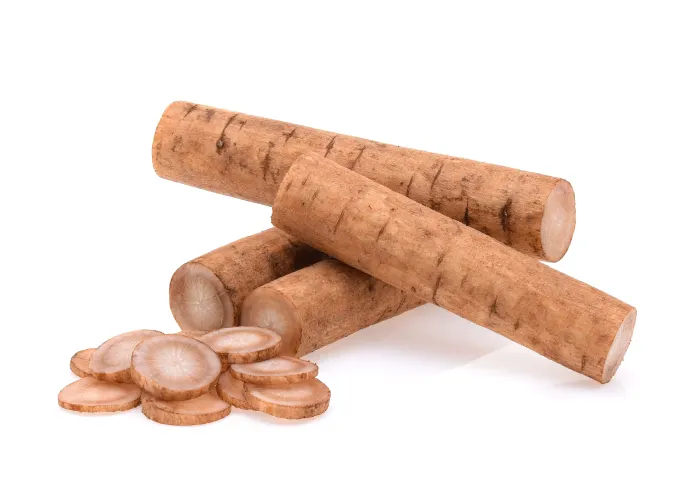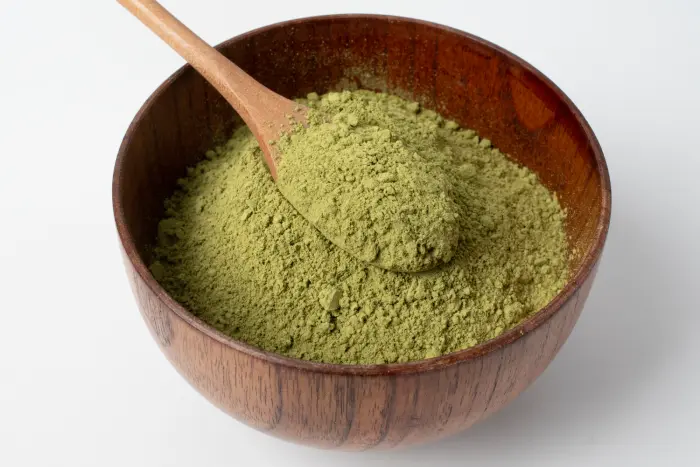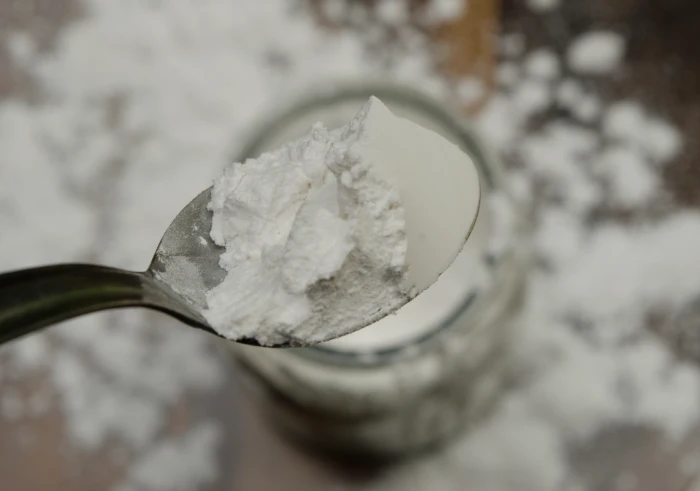What is Chicory Root Extract?
Historical Background and Origin
Chicory root extract comes from the Cichorium intybus plant, a perennial herb that has been used for centuries in traditional medicine and as a coffee substitute. This versatile plant, native to Europe and parts of Asia, has gained significant attention in recent years due to its numerous health benefits and applications in the food industry.
The use of chicory roots dates back to ancient Egyptian times, where it was primarily valued for its medicinal properties. The practice of using chicory root as a coffee substitute became particularly prominent during the Napoleonic Era in France when coffee supplies were limited. This historical usage has evolved into today’s widespread application of chicory root extract in various health and dietary products.
Key Components and Nutritional Profile
The most notable component of chicory root extract is inulin, a type of dietary fiber that has made this plant extract particularly valuable in modern health applications. Inulin from chicory root represents one of the most concentrated sources of this beneficial prebiotic fiber, comprising up to 40% of the root’s mass.
Beyond inulin, chicory root extract contains several other beneficial compounds:
- Polyphenols and other antioxidants
- Essential vitamins (particularly B vitamins)
- Minerals including potassium, calcium, and magnesium
- Small amounts of volatile oils that contribute to its distinctive flavor
Different Forms Available Today
Today, chicory root extract is available in various forms to suit different needs and preferences. The most common forms include:

The Science Behind Chicory Root’s Active Compounds
Understanding Inulin Content
When discussing chicory root extract, it’s crucial to understand the role of inulin, its primary active compound. This soluble fiber has gained significant attention in the scientific community due to its prebiotic properties. Chicory root inulin is particularly valuable because it passes through the digestive system undigested until it reaches the large intestine, where it serves as food for beneficial gut bacteria.
Other Beneficial Compounds
While inulin is the star component of chicory root extract, other compounds contribute to its overall health benefits. The root contains sesquiterpene lactones, which have been studied for their potential anti-inflammatory properties. Additionally, the presence of phenolic compounds contributes to its antioxidant properties.
Health Benefits and Applications
Digestive Health Support
One of the primary reasons for the growing popularity of chicory root extract is its significant impact on digestive health. The high concentration of inulin and chicory root dietary fiber makes it an excellent prebiotic, supporting the growth of beneficial gut bacteria. Research suggests that regular consumption of chicory root fiber can help:
- Promote the growth of beneficial bacteria
- Support regular bowel movements
- Aid in maintaining a healthy gut microbiome
- Potentially reduce inflammation in the digestive system
Blood Sugar Management
Research suggests that chicory root extract may help support healthy blood sugar levels. The inulin in chicory root extract appears to influence glucose metabolism, making it a subject of interest for those concerned about blood sugar management. However, more research is needed to fully understand these effects.
Other Potential Benefits
Preliminary studies on chicory root extract indicate several other potential health benefits, including possible support for cardiovascular health and immune system function. However, it’s important to note that many of these benefits require further research to confirm their effectiveness.
Chicory Root as a Coffee Alternative
History of Chicory Coffee
The practice of using roasted chicory root as a coffee substitute gained popularity during times of coffee shortages. Today, chicory root coffee continues to be appreciated not just as an alternative but as a beverage choice in its own right. The tradition of drinking coffee with chicory root is particularly strong in certain cultures, notably in New Orleans-style coffee.
Taste Profile and Characteristics
When roasted, chicory root develops a remarkable flavor profile that shares some characteristics with coffee while maintaining its own distinct qualities. The chicory root taste is often described as:
- Woody and nutty
- Slightly bitter but smooth
- Rich and earthy
- Less acidic than traditional coffee
Many people find that roasted chicory root coffee offers a satisfying alternative to regular coffee, especially for those looking to reduce their caffeine intake.
Different Preparation Methods
There are several ways to prepare chicory root beverages:
- As a complete coffee substitute: Using 100% roasted chicory root powder
- Blended with coffee: Creating a traditional coffee with chicory root blend
- As chicory root tea: Steeping either roasted or raw chicory root
Types and Forms of Chicory Root Products
Raw vs Roasted Chicory Root
The processing method significantly affects the final product’s characteristics. Raw chicory root extract retains more of its natural compounds, while roasted chicory root develops its coffee-like qualities. The roasting process transforms the root’s natural sugars and other compounds, creating the deep, rich flavor that makes it such a popular coffee substitute.
Supplements and Powders
Chicory root extract is available in various supplemental forms:
- Pure chicory root powder for beverages
- Encapsulated supplements
- Liquid extracts
- Fiber supplements featuring chicory root extract
When choosing between different forms, consider your specific needs and intended use. For instance, those primarily interested in the prebiotic benefits might opt for a pure chicory root extract supplement, while those seeking a coffee alternative might prefer roasted chicory root coffee.
Teas and Beverages
Chicory root tea offers another popular way to consume this beneficial plant. The tea can be prepared from either raw or roasted chicory roots, with each offering its own unique chicory root tea benefits. Many people appreciate chicory root tea as a caffeine-free beverage option that provides potential health benefits while offering a satisfying taste experience.
This natural brewing method allows for the full extraction of beneficial compounds while providing a gentle way to introduce chicory root extract into your daily routine. Whether consumed alone or blended with other herbs, chicory root tea represents one of the most traditional and accessible ways to enjoy this versatile plant.
Dietary Fiber Content: A Closer Look
Inulin vs Other Fiber Types
Understanding what makes chicory root fiber unique is essential for those interested in its health benefits. The inulin found in chicory root extract is a specific type of soluble fiber that offers distinct advantages compared to other fiber sources. When comparing chicory root fiber vs inulin from other sources, it’s important to note that chicory root provides one of the most concentrated natural sources of this beneficial compound.
Recommended Daily Intake
While chicory root extract is generally safe for most people, it’s important to start with small amounts and gradually increase intake. The recommended daily intake can vary depending on individual tolerance and the form being used. Factors to consider include:
- Your current fiber intake
- Digestive sensitivity
- The specific product’s concentration
- Your overall health goals
Absorption and Effects
The way chicory root extract is processed in the body makes it particularly effective as a prebiotic. The inulin passes through the upper digestive system unchanged, providing food for beneficial bacteria in the large intestine.
Comparing Chicory Root with Other Sources
Chicory Root vs Jerusalem Artichoke
When considering which inulin is better, chicory root or Jerusalem artichoke, several factors come into play:
- Concentration of inulin
- Taste differences
- Availability and cost
- Processing methods
- Individual tolerance
Both sources have their merits, but chicory root extract is often preferred due to its higher concentration of inulin and more widespread availability.
Best Ways to Incorporate Chicory Root
Beverage Preparations
The versatility of chicory root makes it easy to incorporate into your daily routine. Here are some popular methods:
- As a coffee alternative:
- Use organic chicory root coffee for a caffeine-free morning beverage
- Blend with regular coffee to reduce caffeine intake
- Try different ratios to find your preferred taste
- As a tea:
- Steep whole or ground chicory roots
- Combine with other herbs for varied flavors
- Enjoy hot or cold
Culinary Applications
Beyond beverages, chicory root extract can be incorporated into various foods:
- As a natural sweetener in baked goods
- Added to smoothies and breakfast bowls
- Used in homemade energy bars
- Incorporated into dairy-free desserts
Supplement Usage
For those focusing on the health benefits rather than the culinary applications, chicory root supplements offer a convenient option. When choosing a supplement form:
- Consider your specific health goals
- Check the concentration of active compounds
- Look for quality certifications
- Review the recommended dosage
Safety Considerations and Precautions
General Side Effects
While chicory root extract is generally safe, some people may experience:
- Initial digestive adjustment period
- Mild bloating or gas
- Changes in bowel movements These effects typically diminish as your body adjusts to increased fiber intake.
Pregnancy Concerns
Special consideration should be given to chicory root and pregnancy. While chicory root fiber during pregnancy isn’t inherently dangerous, pregnant women should consult with their healthcare provider before adding any new supplements to their diet, including chicory root extract.
Allergies and Sensitivities
Some individuals may experience chicory root allergy symptoms. Those with known allergies to related plants in the dandelion family should exercise caution. Signs of sensitivity may include:
- Skin reactions
- Digestive discomfort
- Respiratory symptoms

Buying Guide
What to Look For
When seeking quality chicory root extract products, understanding key quality indicators becomes essential. Look for products that clearly state their source and processing methods. Products available at whole foods markets and reputable health stores often undergo stricter quality control. The color should be consistent, and in the case of roasted products, there should be a rich, characteristic aroma. Organic certification can provide additional assurance of product quality and sustainable farming practices.
Where to Purchase
Today’s market offers numerous options for purchasing chicory root products. Specialty health food stores typically carry various forms, from raw roots to processed supplements. Many traditional grocery stores have also begun stocking these products in their health food sections. When shopping online, it’s crucial to choose reputable sellers who provide detailed product information and maintain transparent business practices.
Storage Tips
Proper storage significantly affects the longevity and quality of chicory root products. Store raw roots in a cool, dry place with good air circulation. Powdered forms and supplements should be kept in airtight containers away from direct sunlight and moisture. Pay attention to expiration dates and any specific storage instructions provided by manufacturers to maintain optimal product quality.
Dosage and Usage Recommendations
Different Forms and Their Dosages
Finding the right amount of chicory root supplement or powder to use depends largely on individual factors and the specific form being used. When starting with any new supplement, it’s wise to begin with a smaller amount and gradually increase it as your body adjusts. Those new to chicory root products often find that starting with tea or coffee blends provides a gentle introduction before moving to more concentrated forms.
Timing and Frequency
The timing of consumption can influence both benefits and potential side effects. Many people find that incorporating chicory root products into their morning routine works best, particularly when used as a coffee substitute. For those using it primarily for its prebiotic benefits, spreading consumption throughout the day may prove more effective.
Integration Tips
Successful integration of chicory root into your daily routine often requires a thoughtful approach. Consider your existing dietary habits and health goals when determining the best incorporation method. Some people prefer to start with chicory root tea before exploring other options, while others might begin by mixing small amounts into their regular coffee.
Frequently Asked Questions (FAQs)
Common questions about chicory root often center around its taste, proper preparation methods, and potential benefits. Many newcomers wonder about the flavor profile, which is unique and distinctive. The taste can be described as earthy and slightly bitter, with roasted varieties offering coffee-like notes. Questions about preparation methods typically focus on achieving the best results with different forms of the product.
Safety concerns, particularly regarding pregnancy and existing health conditions, represent another common area of inquiry. While generally recognized as safe, individual circumstances may require professional medical guidance before use. Questions about potential interactions with medications or existing health conditions should always be directed to healthcare providers.
Conclusion and Final Thoughts
The growing interest in chicory root products reflects a broader trend toward natural health solutions and alternative beverage options. While research continues to explore its full potential, existing evidence supports its role in promoting digestive health and providing a viable coffee alternative. As with any dietary supplement, success lies in finding the right form and usage pattern for individual needs and preferences. The versatility and accessibility of chicory root products make them an interesting option for those looking to expand their wellness routine with natural alternatives.




